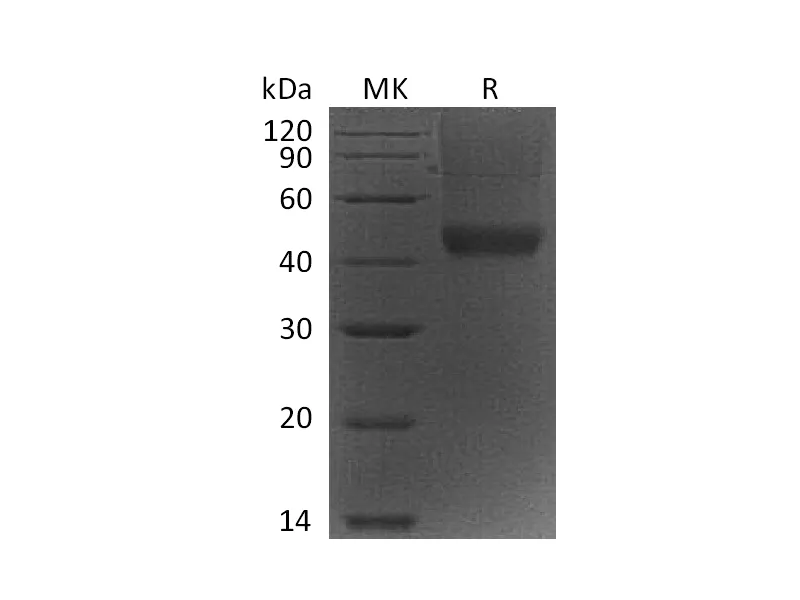
Size2:50μg price2:$108
Size3:500μg price3:$635
| Name | Recombinant Mouse Decorin (C-6His) |
| Purity | Greater than 95% as determined by reducing SDS-PAGE |
| Endotoxin level | <1 EU/µg as determined by LAL test. |
| Construction | Recombinant Mouse Decorin is produced by our Mammalian expression system and the target gene encoding Gly17-Lys354 is expressed with a 6His tag at the C-terminus. |
| Accession # | P28654 |
| Host | Human Cells |
| Species | Mouse |
| Predicted Molecular Mass | 39 KDa |
| Buffer | Lyophilized from a 0.2 μm filtered solution of PBS, pH 7.4. |
| Form | Lyophilized |
| Shipping | The product is shipped at ambient temperature.Upon receipt, store it immediately at the temperature listed below. |
| Stability&Storage | Store at ≤-70°C, stable for 6 months after receipt.Store at ≤-70°C, stable for 3 months under sterile conditions after opening. Please minimize freeze-thaw cycles. |
| Reconstitution | Always centrifuge tubes before opening.Do not mix by vortex or pipetting.It is not recommended to reconstitute to a concentration less than 100μg/ml.Dissolve the lyophilized protein in distilled water.Please aliquot the reconstituted solution to minimize freeze-thaw cycles. |
Alternative Names
Decorin; Bone proteoglycan II; PG-S2; PG40; Dcn
Background
Decorin, also known as PG40 and DCN, is a member of the class I family of small leucine-rich proteoglycans (SLRPs) that is expressed in the stroma of various forms of cancer and has been recently proposed to act as a guardian from the matrix. Mature human Decorin contains 12 tandem LRR and shares 80% and 78% aa sequence identity with mouse and rat Decorin, respectively. Decorin embraces numerous functions including: regulation of collagen fibrillogenesis, hepatic carcinogenesis, fetal membrane and calcium homeostasis, keratinocyte function, and suppression of angiogenesis. Most recently, soluble decorin has been shown to induce autophagy in endothelial cells and mitophagy in breast carcinoma cells.
Note
For Research Use Only , Not for Diagnostic Use.
